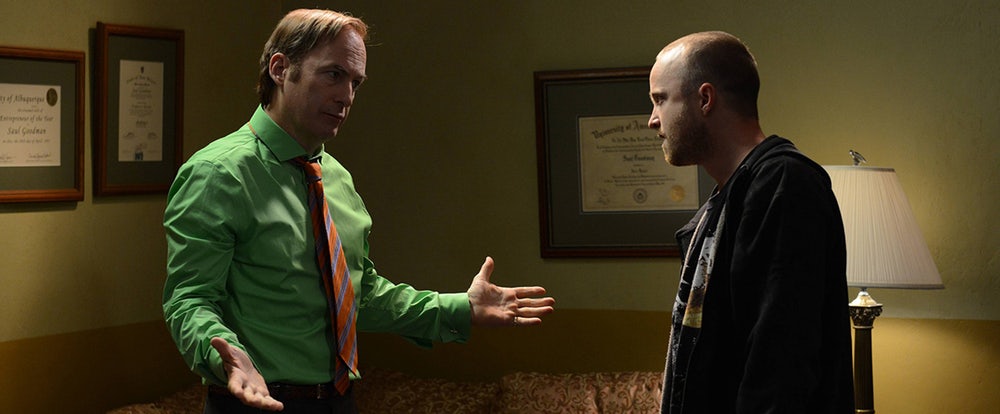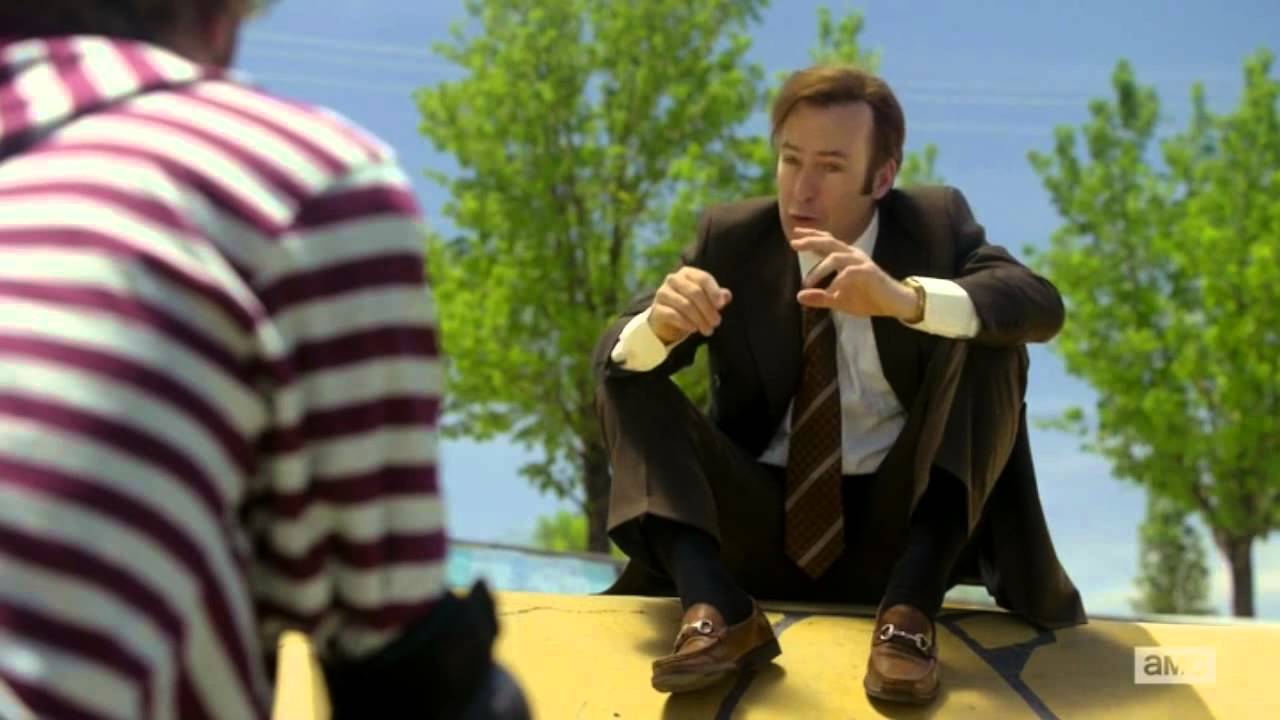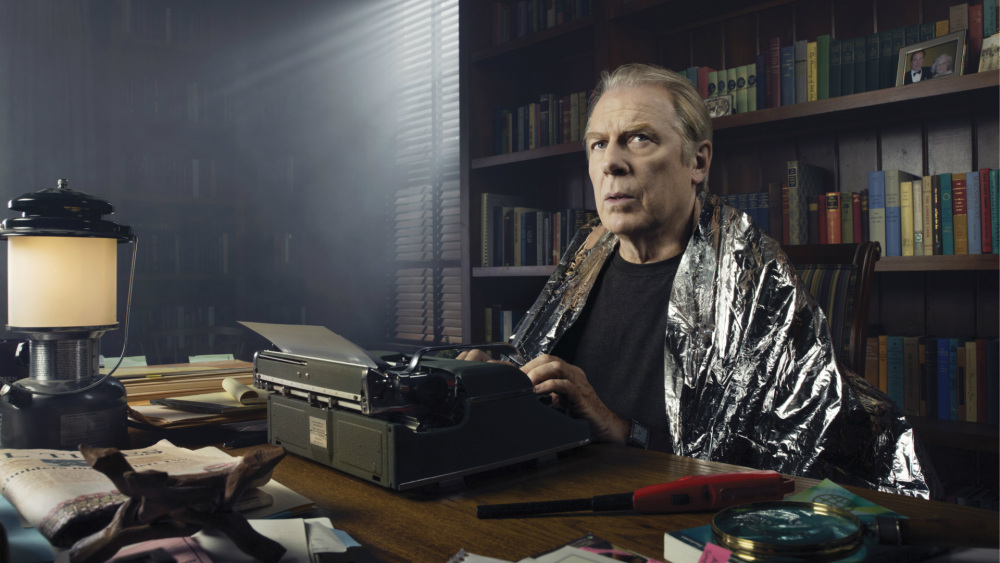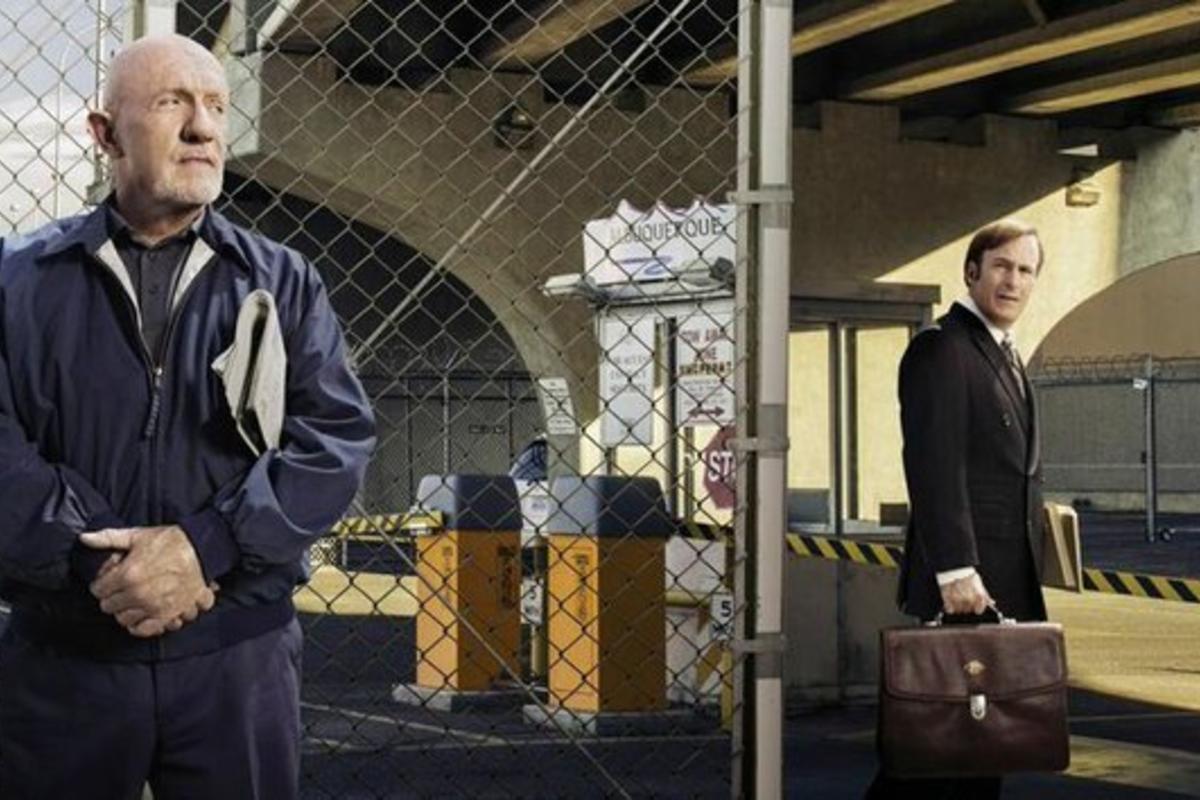As Breaking Bad came to its end in 2013, fans (as well as AMC executives) were hungry for more. Vince Gilligan didn’t want the series to drag on into mediocrity, as is so often the case with popular TV series, but he also knew that the world wasn’t ready to completely let go of the world he had created. In early 2015, he gave the world his response with the critically acclaimed spinoff/prequel Better Call Saul.
A Different Kind of Series
Producers debated over many possibilities with Better Call Saul. After all, he was arguably everyone’s favorite side character, but also provided jokes and other comic relief in a show that was filled with bleakness and tension. Ultimately, it was decided that his series would follow the serialized drama format, still with Saul’s (or Jimmy’s) signature sarcastic, comedic style. For the same reason that Frasier succeeded after Cheers, BCS knew that it had to adapt a slightly different style to fit their new lead.

Whereas Breaking Bad was a Sopranos-like crime drama involving violent drug wars, BCS felt more like a legal show in the vain of Boston Legal. Yet it lives up to its predecessor with Gilligan’s brilliant ability to tell a long form story over ten episodes, complete with suspense and an immense amount of foreshadowing. While it lacks the many life or death situations as Breaking Bad, it doesn’t fail to captivate the viewer into the origin of how Jimmy McGill went from “respected” lawyer to criminal attorney Saul Goodman.
Compelling Characters
Part of what made Frasier so successful was that it created a cast of characters just as interesting and funny as the previous ensemble on Cheers. The same is true for BCS. Right from the first season, it’s clear that there are many parallels between young Jimmy McGill and Walter White. Both are tragic stories of a man who discovers a talent for doing evil. They don’t necessarily want to do what’s wrong, but after trying to do the right thing, they are compelled down a rabbit hole into very illegal behavior.

In addition, it boasts superb performances by Rhea Seehorn, as Kim, Jimmy’s ex-girlfriend whom he has a complicated friendship with; as well as Michal McKean, his holier than thou, mentally unstable brother. In a brief, but memorable performance, we also see Ed Begley Jr. as Jimmy’s boss at a law firm. Gilligan is known for casting comedians because he feels that they often do well with drama. They say that comedy is tragedy plus time, so it’s no surprise that under the surface of a comedian is the ability to emote somberness, and even pain. Fans of Breaking Bad also get to see more of Mike and his backstory.

Bridging the Gap
In a unique twist, a small part of the series takes place years after the original, while the vast majority is a prequel. Unlike other examples, BCS doesn’t suffer from prequel-itis too much. Sure it goes into how Mike got involved with the drug cartels. It also showcases certain favorite characters as Gus Fring, Lydia, and a few members of the Salamanca family. There’s fan service, but it never feels like too much, and it’s never at the expense of Jimmy’s narrative. In fact, they often intersect organically. One could even watch this series and not know anything about Breaking Bad, but still enjoy it.

And that’s the key to developing a quality spinoff. Too many just try to do the same thing as the predecessor, or they change the main character so they are unrecognizable from the original series. The very best spinoffs feel different enough to stand on their own, while including enough connections to the previous series for diehard fans. Mork & Mindy pulled it off in the 70s, Frasier did it in the 90s, and now BCS is the one to beat in the 2010’s.




